Abdominal Compartment Syndrome Pathophysiology
Abdominal compartment syndrome pathophysiology. Renal failure with reduced urine output is often the first sign of abdominal compartment syndrome. Intraabdominal hypertension and abdominal compartment syndrome affect all body systems most notably the cardiac respiratory renal and neurologic systems. The most common cause is blunt abdominal trauma.
Abdominal compartment syndrome refers to organ dysfunction caused by intra-abdominal hypertension. A concise clinical review. A thorough understanding of the pathophysiologic implications of elevated intra-abdominal pressure is fundamental to 1 recognizing the presence of intra-abdominal hypertension and abdominal compartment syndrome 2 effectively resuscitating patients afflicted by these potentially life-threatening diseases and 3 preventing the development of intra-abdominal.
Abdominal compartment syndrome ACS is a severe illness seen in critically ill patients. Chronic or exertional compartment syndrome is caused by intense repetitive exercise and usually stops with rest or changes in routine. Compartment syndrome usually results.
This complication also affects blood flow to various intraabdominal organs and may play a significant role in the sepsis and multiple organ failure syndrome seen in many trauma patients. Acute compartment syndrome is a medical emergency usually caused by trauma like a car accident or broken bone. Abdominal compartment syndrome is a potentially lethal condition caused by any event that produces intra-abdominal hypertension.
ACS results from the progression of steady-state pressure within the abdominal cavity to a repeated pathological elevation of pressure above. S Abdominal Compartment Syndrome ACS S A sustained IAP 20mmHg with or without an APP 60 that is associated with new organ dysfunctionfailure research purposes. Abdominal compartment syndrome is defined as an intra-abdominal pressure of more than 20mmHg that results in the failure of an organ like the kidney or the lung.
Primary causes are due to decreased abdominal compliance presence of an intra-abdominal or retroperitoneal injury or a pathologic process. Intra-abdominal hypertension IAH associated with organ dysfunction defines the abdominal compartment syndrome ACS. Compartment syndromeoccurs when excessive pressure builds up inside an enclosed muscle space in the body.
Increased pressure may compress the kidney directly and also cause renal congestion due to impaired drainage of blood out of the kidney. ABDOMINAL COMPARTMENT SYNDROME The abdominal compartment syndrome ACS is defined as the pathophysiology and organ dysfunction that occurs as a result of intra-abdominal hypertension IAH.
Compartment syndrome usually results.
Renal failure with reduced urine output is often the first sign of abdominal compartment syndrome. A thorough understanding of the pathophysiologic implications of elevated intra-abdominal pressure is fundamental to 1 recognizing the presence of intra-abdominal hypertension and abdominal compartment syndrome 2 effectively resuscitating patients afflicted by these potentially life-threatening diseases and 3 preventing the development of intra-abdominal. Treatment of the syndrome is early decompression. The most common cause is blunt abdominal trauma. Abdominal compartment syndrome ACS is a severe illness seen in critically ill patients. These are less common than the secondary causes. A concise clinical review. This complication also affects blood flow to various intraabdominal organs and may play a significant role in the sepsis and multiple organ failure syndrome seen in many trauma patients. Compartment syndrome is a painful condition with muscle pressure reaching dangerous levels.
Compartment syndromeoccurs when excessive pressure builds up inside an enclosed muscle space in the body. The renal cardiovascular and pulmonary systems are most affected. Acute compartment syndrome is a medical emergency usually caused by trauma like a car accident or broken bone. A thorough understanding of the pathophysiologic implications of elevated intra-abdominal pressure is fundamental to 1 recognizing the presence of intra-abdominal hypertension and abdominal. It may be underrecognized because it primarily affects patients who are already quite ill and whose organ dysfunction may be incorrectly ascribed to progression of. Primary causes are due to decreased abdominal compliance presence of an intra-abdominal or retroperitoneal injury or a pathologic process. Abdominal compartment syndrome is a potentially lethal condition caused by any event that produces intra-abdominal hypertension.




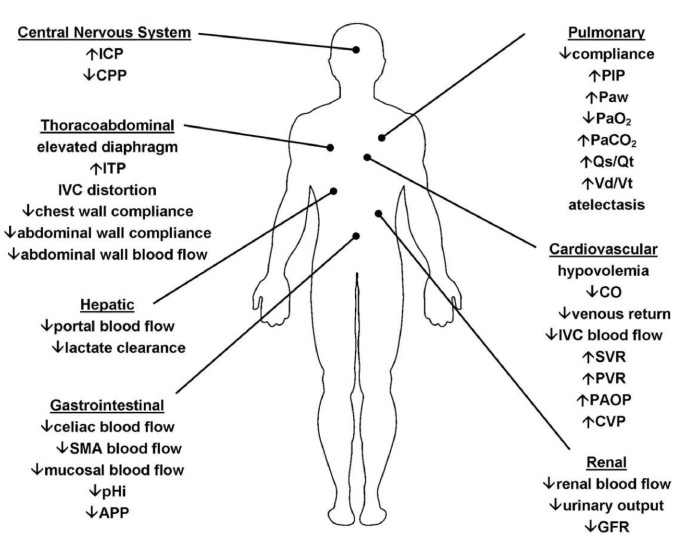

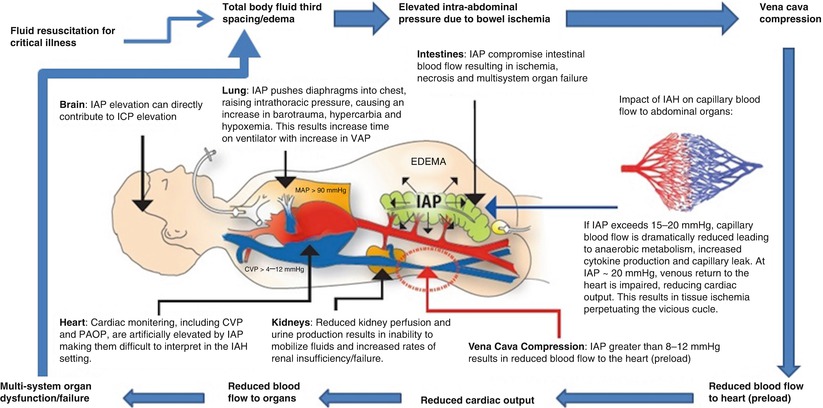
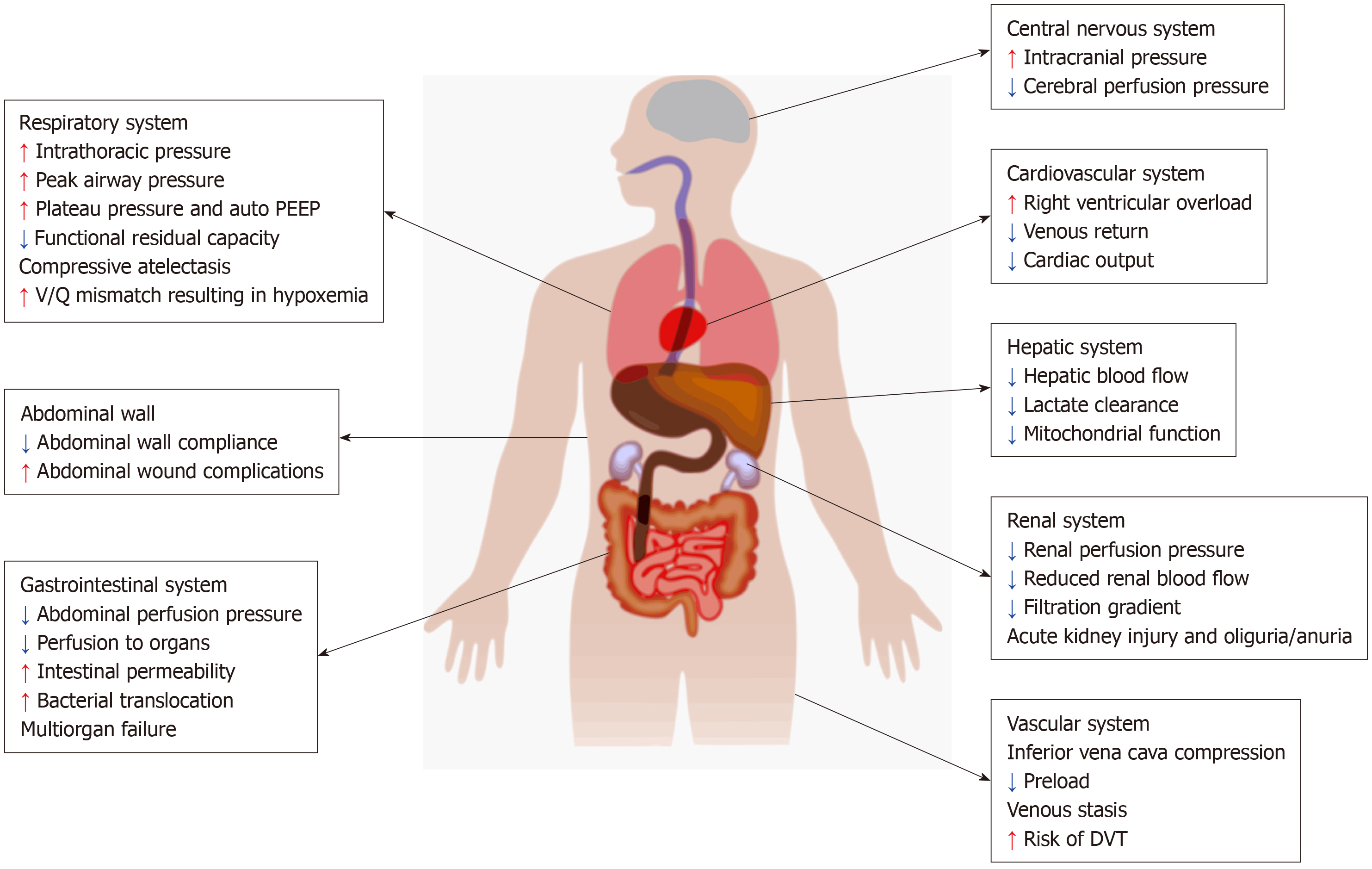


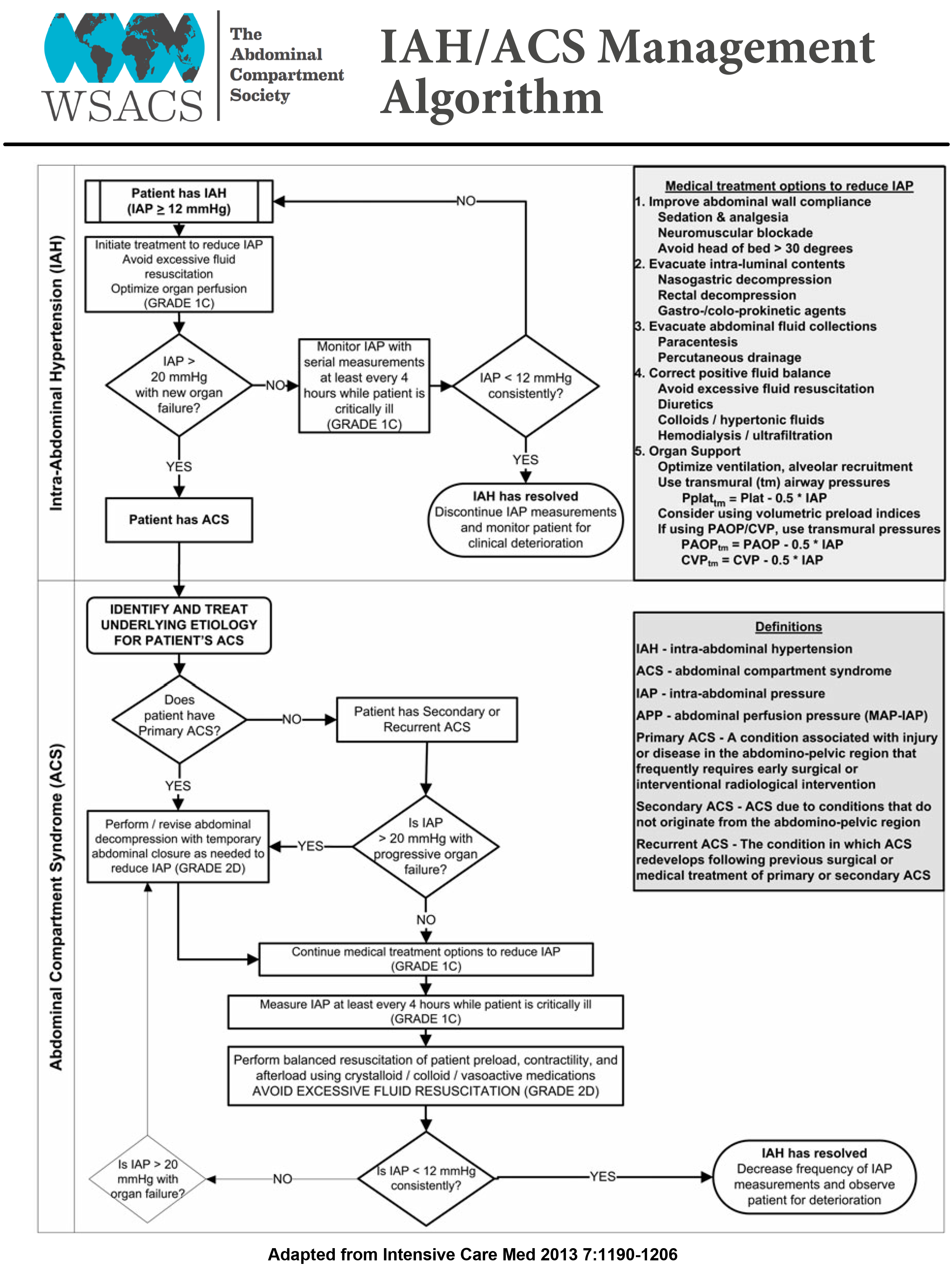



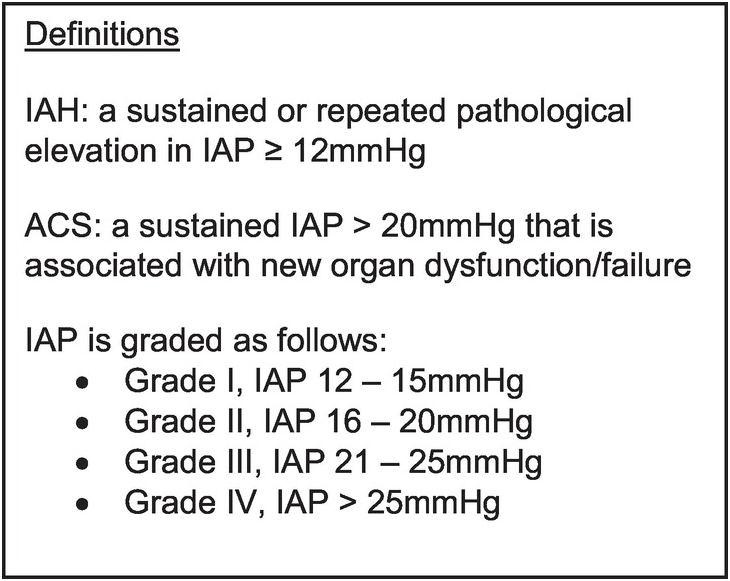





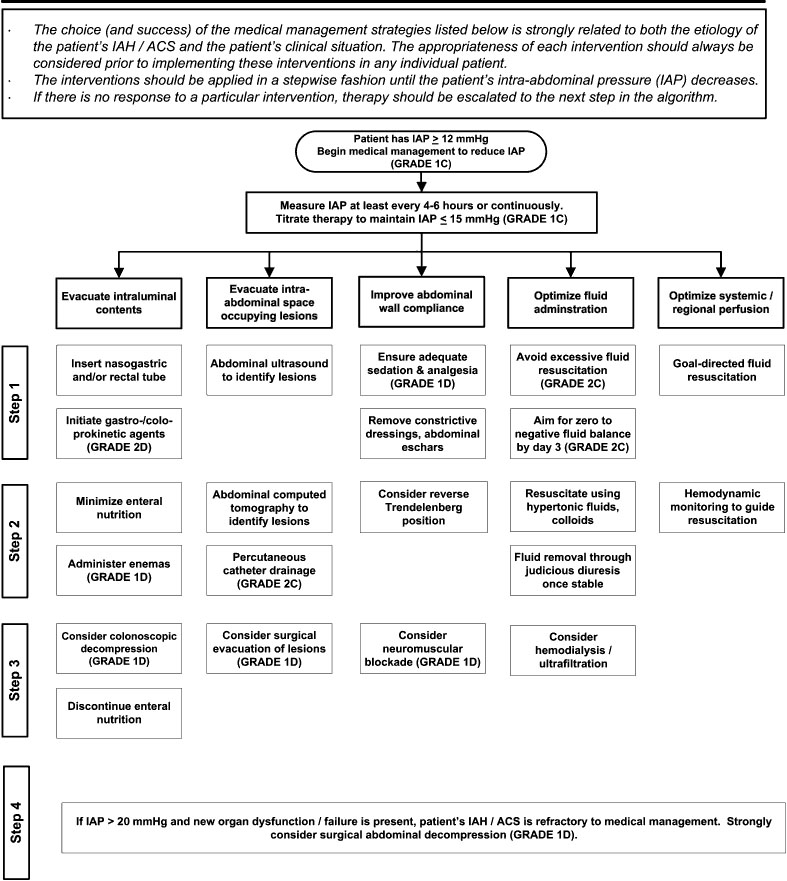

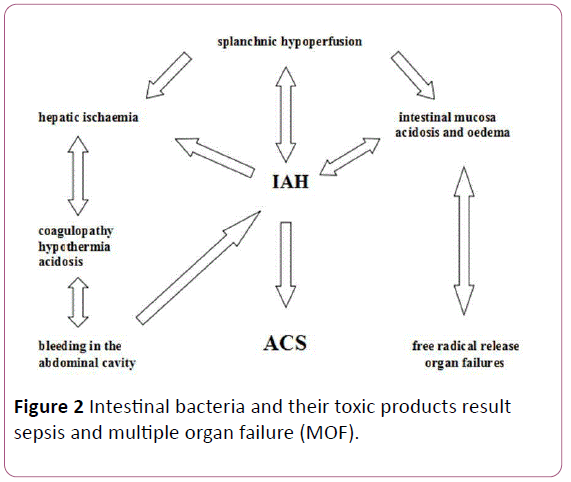



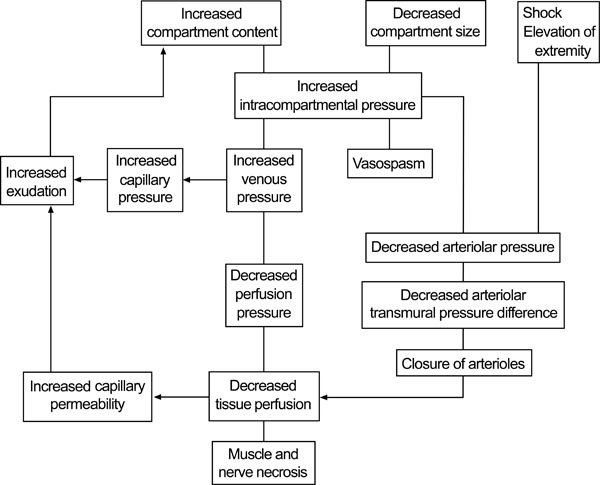



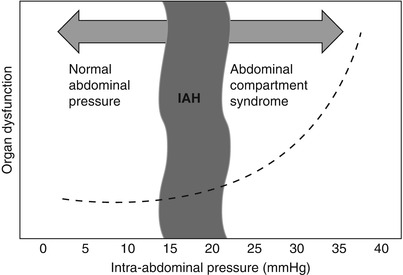









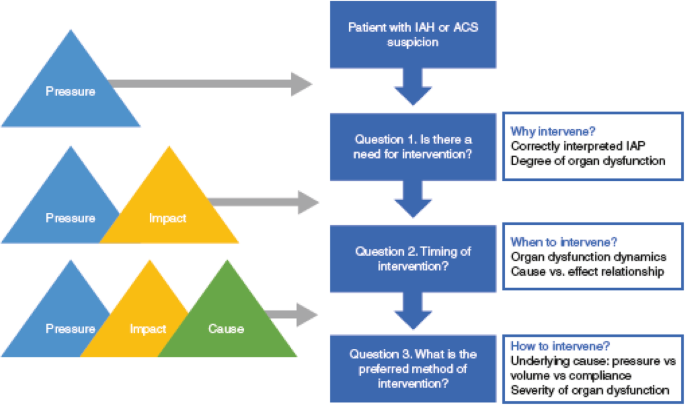

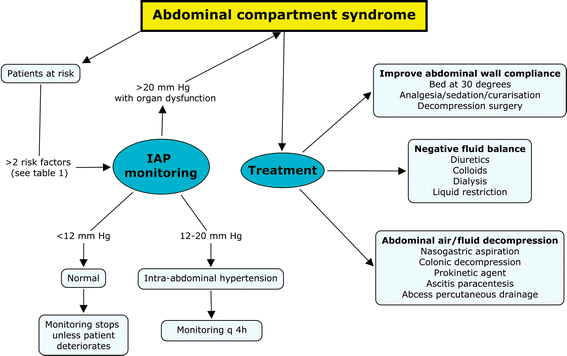



Post a Comment for "Abdominal Compartment Syndrome Pathophysiology"